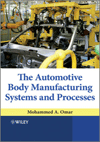FedEx Express will participate in General Motor’s HydroGen3 fuel cell testing program for 1 year by operating the HydroGen3 on its normal delivery schedules in the Tokyo area. The test program will begin June 2003 and end June 2004.
General Motors will collect and analyze the data gained from the FedEx Express operation to determine how its fuel cell vehicles operate under demanding, real-world commercial driving conditions. The company will then contribute these results as part of its participation in the Japan Hydrogen and Fuel Cell Demonstration Project.
"To really prove that fuel cell vehicles are equal to or better than conventional, internal combustion vehicles, you need to operate them under tough, everyday conditions," says Raymond Grigg, chairman, CEO and representative director of General Motors Japan Ltd. "Our fuel cell technology has advanced to the point where it’s important to involve a real, heavy-duty commercial user in our research and development activities. We expect to learn a lot by having FedEx Express put our HydroGen3 to the test on their daily delivery runs on the streets of Tokyo. This is how you truly prove durability and dependability."
Under the agreement, General Motors will collect data from FedEx Express, and will provide all vehicle engineering and maintenance.
"We recognize effective environmental management as one of our most important corporate priorities," says David J. Ross, vice president for the North Pacific Region at FedEx Express.
The HydroGen3 is the first fuel cell vehicle fueled with liquid hydrogen to run on public roads in Japan. It has a range of 250 miles and a top speed of 100 mph. Some of the key breakthroughs include eliminating the need for a buffer battery—needed in previous generations to deal with specific peak-power demands—as well as developing an internal system for humidifying the fuel cell stack.



